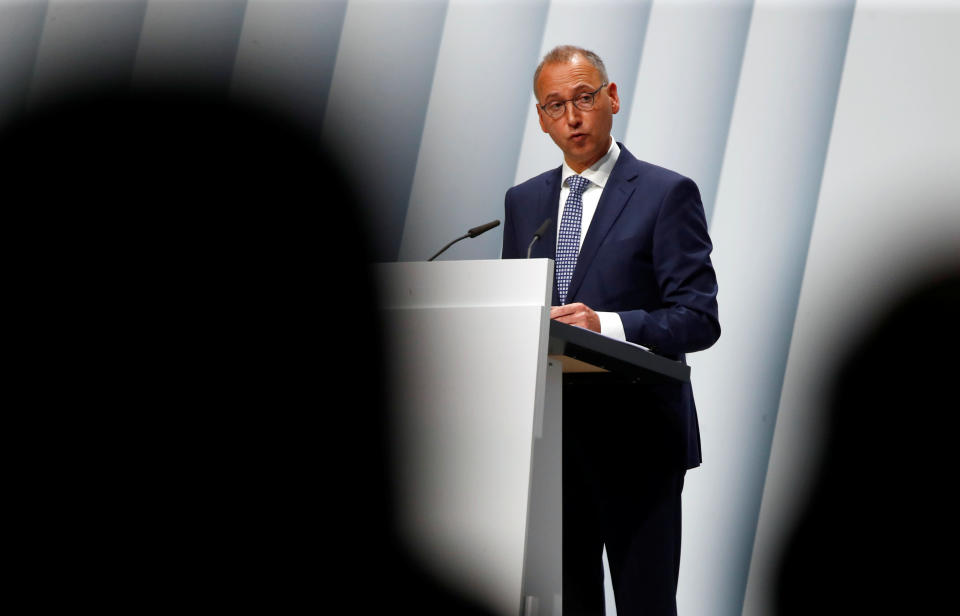Bayer CEO: Patient distrust of tech holds back gene-editing advances

Pharmaceutical companies are battling “less and less trust” in society for technological advances, according to a leading figure in the industry.
Werner Baumann, CEO and board of management chair of Bayer (BAYN.DE), sounded the alarm over public distrust of advanced techniques in a discussion of gene-editing to tackle inherited disorders at the Davos summit on Tuesday.
He said research should be carried out with “absolute and ultimate transparency,” actively encouraging broader public debate and regulator involvement on contentious issues.
The comments came at a panel event at the World Economic Forum (WEF)’s high-profile annual gathering of political, business and charity leaders in Davos, Switzerland.
The event, titled “When humankind overrides evolution,” was aimed at exploring how new genetic techniques should be managed to handle ethical concerns.
Organisers said advances in synthetic biology and other new genetic procedures could have far-reaching consequences, such as reviving extinct species or wiping out dangerous pests.
Discussion focused on what should be done to ensure such new technologies were handled responsibly.
READ MORE: World’s elite head to Switzerland for Davos 2020
Baumann said technology could be not be “intrinsically” good or bad, but technology can be used for “noble” causes or the opposite.
“There is less and less trust in society for the advances of technology, which makes our lives miserable.
“The only way to get beyond it is that we do a better job in explaining what we’re doing, what we would do, what the right lines are.”
The event was chaired by Magdalena Skipper, a geneticist and editor-in-chief of Nature magazine.
Kevin Michael Esvelt, a professor at the Massachusetts Institute of Technology (MIT), and Beth Shapiro, a professor in the University of California’s ecology and evolutionary biology department, were also on the panel.
Esvelt said attitudes could change, saying more than 90% of people were against IVF when it was first rolled out.

READ MORE: Oxfam says world’s top billionaires richer than 60% of global population
The WEF summit takes place every year in the town of Davos, a ski resort in the Swiss Alps.
More than 3,000 guests are attending Davos 2020 throughout this week. “Stakeholders for a cohesive and sustainable world” is the official theme, with climate change in particular high on the agenda.
Organisers hope the annual event will facilitate discussion and collaboration to tackle major international issues among some of the most powerful people in the world.
But the summit, typically labelled ‘Davos’ after the host town, has become a lightning rod for criticism of global capitalism and the world’s elite.

